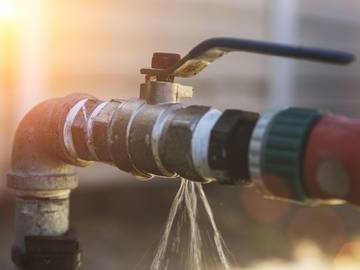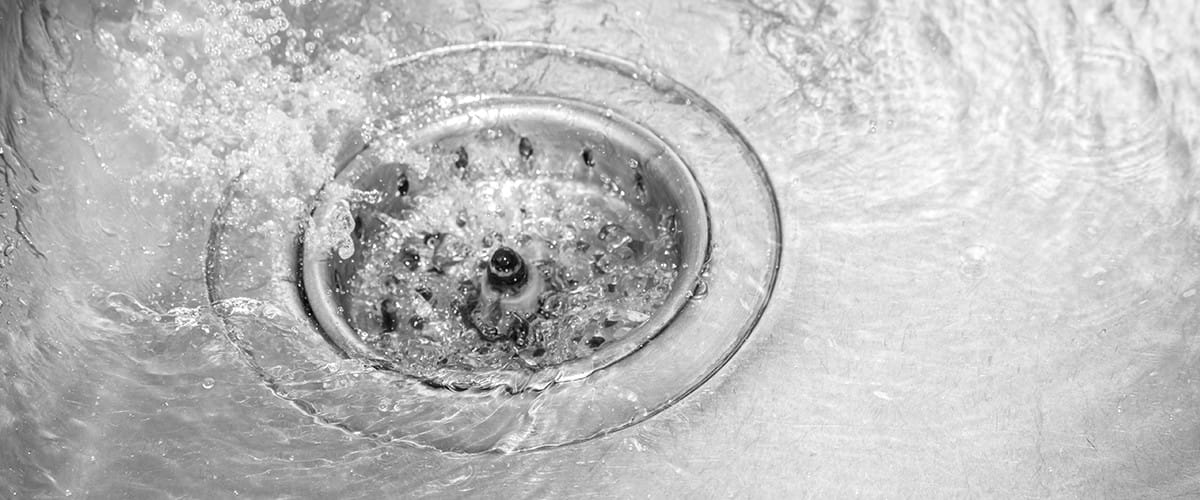Everyone will have their personal opinion on the subject of How to Find and Prevent Water Leaks in Your Home.

"Be cautious of little costs. A little leakage will sink a terrific ship." - Benjamin Franklin.
He could not have actually been more best because water leakages in our houses lead to a waste of sources, increasing our water bills. This rise might seem negligible at first, it can lead to substantial expenditures that can break your bank. Other than a boost in costs, water leaks also cause unwanted organic growth, architectural damages, and also also electrical risks.
If you have a water leak isn't constantly simple due to being unable to see many of the pipework in your house, figuring out. However, If you have had a boost in your water costs lately, saw water stains on ceilings and also wall surfaces, scented poor odor, etc. You might want to take into consideration requesting plumbing solutions to get it took a look at.
There are a number of root causes of water leakages, and also we have assembled the common reasons below. Examine to see if you have had associated concerns in your home lately.
Damaged pipe joints
Pipeline joints are the parts of our plumbing system where the pipelines link. They are the weakest factor of our plumbing system. Consequently, they are extra prone to wear and tear. It is vital to keep in mind that despite the fact that pipes are made to hold up against pressure as well as last for some time, they weren't developed to last forever; for that reason, they would wear away over time. This degeneration could lead to cracks in plumbing systems. An usual indicator of damaged pipe joints is too much sound from faucets.
High water pressure
You saw your residence water pressure is greater than usual but then, why should you care? It runs out your control.
It would be best if you cared because your average water stress ought to be 60 Psi (per square inch) and also although your house's plumbing system is developed to withstand 80 Psi. A rise in water pressure can put a strain on your residence pipelines as well as bring about fractures, or even worse, burst pipes. Obtain in touch with a specialist about managing it if you ever see that your house water stress is greater than typical.
Rust
As your pipework ages, it gets weaker and much more susceptible to rust after the frequent flow of water with them, which can eat away at pipes and also cause splits. A noticeable indication of corrosion in your home plumbing system is staining and although this could be difficult to find because of many pipelines hidden away. We encourage doing a frequent checkup every couple of years and alter pipelines once they are old to make sure an audio plumbing system
Obstructed drains
Food bits, dirt, as well as oil can cause blocked drains and block the flow of water in and out of your sink. If undealt with, increased pressure within the seamless gutters can cause an overflow and end up breaking or bursting pipelines. To prevent clogged up drains in your home, we advise you to stay clear of putting bits down the drain and also routine cleansing of sinks.
Damaged seals
Another source of water leakages in homes is damaged seals of home devices that use water, e.g., a dishwashing machine. When such devices are mounted, seals are mounted around water connectors for simple passage of water via the device. For this reason, a damaged seal can cause leakage of water when being used.
With little or no understanding of plumbing, understanding your residence's plumbing system enough to repair several of these issues (without consequence) can be a trouble. Contact plumbing experts in Pittsburgh, Divine Superintendence, Rochester, as well as environ today, and also they'll make those concerns disappear.
He could not have actually been extra appropriate because water leakages in our residences result in a waste of sources, increasing our water bills. If you have had a boost in your water bills lately, observed water stains on ceilings and walls, scented poor odor, and so on. A rise in water stress can place a pressure on your home pipes as well as lead to cracks, or worse, ruptured pipelines. An additional cause of water leakages in residences is damaged seals of house devices that use water, e.g., a dishwasher. When such home appliances are set up, seals are mounted around water adapters for very easy flow of water via the machine.
5 TIPS IN DETECTING A WATER LEAK IN YOUR HOUSE
Water leaks can be hard to find in your home, yet they can be so common. We rely on water every day in our home, which is why a leak can cause big problems. By detecting them early, you can save money and further damage, getting the problem fixed as soon as possible. Here are 5 tips to help you detect a water leak in your home, so you can contact a plumber straight away and get the issue sorted.
Check your water meter
Many people underestimate the value of the water meter in their home. It can be one of the best ways to tell if you have a leak early on, so you can get on top of it before issues start arising. Start by turning off all the water in your home: taps, washing machine, dishwasher, etc. Now take a look at the meter – if it’s still changing with everything turned off, it’s likely you have a fast-flowing leak that you need to get on top of straight away. If nothing changes, then leave your meter for an hour or two and come back to it. Did it change in this time? It’s likely you have a slower leak, which isn’t as urgent but still handy to get fixed so it doesn’t become a bigger problem.
Keep an eye on your bill
Another good way to detect a leak in your home is by keeping an eye on your water bill. It helps if you have a past bill from the same period of time. You can compare like for like and determine whether your water usage has increased significantly. If it has, there may be a leak in your system that you haven’t picked up before. A professional plumber can check through all of your pipes and determine where it is coming from.
Look for damage
If you have a leak inside your home, you will notice damage over time. Take a look at your showers and bathtubs and note whether any of the tiles surrounding the area seem to be discoloured or damaged in any way. There may be water stains, mould or peeling material that has resulted from a build up of moisture over time. Make sure you take a look under sinks at the back of cupboards that don’t get accessed regularly. This is where damage can go unnoticed and build up over periods of time.

Do you like reading up on How to Find and Prevent Water Leaks in Your Home? Write feedback further down. We'd be pleased to know your suggestions about this write-up. We hope that you visit us again in the near future. Enjoyed our post? Please share it. Let somebody else find it. Thank you so much for going through it.
Need it done? Dial!